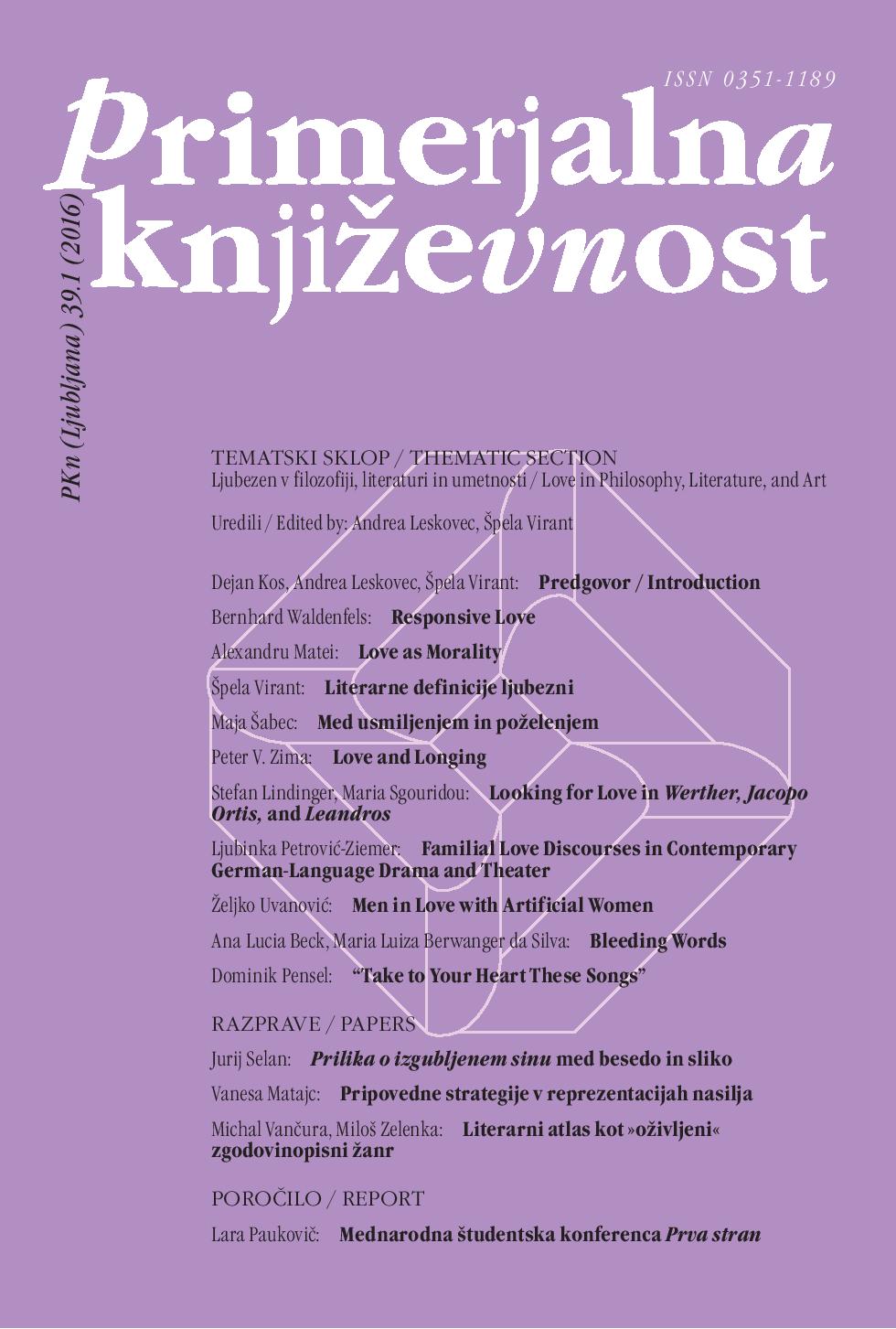Love as Morality: The Non-Will-to-Possess or the Utopia of Affectivity in Roland Barthes’s A Lover’s Discourse
Keywords:
love, Barthes, Roland, A Lover’s Discourse. Fragments, affect theory, language and powerAbstract
A Lover’s Discourse. Fragments is one of the most read text on love by the end of the twentieth century. Considered within the larger span of Roland Barthes’s works, his Fragments are a sort of preview for the main affective utopia Barthes ever dreamt of: the Neutral, as closeness and distance at the same time. The main trigger of Barthes febrile research of the Neutral is his conception of an affect apt to be separated from power. Love without exerting any pressure on the other. One of its origins may be considered his own difference: being homosexual in a society deprived of institutions meant to shelter homosexual affection.References
Barthes, Roland. Œuvres complètes I–V. Paris: Seuil, 2002.
Barthes, Roland. A Lover’s Discourse. Fragments. (Translated by Richard Howarth). London: Penguin Books, 1990.
Barthes, Roland. Le Neutre. Cours au Collège de France (1977–1978). (Edited by Thomas Clerc). Paris: Seuil IMEC, 2002.
Coste, Claude. “Preface.” Roland Barthes, Le Discours amoureux. Séminaire à l’Ecole Pratique des hautes études. Paris: Seuil, 2007.
Doubrovski, Serge. Fils. Paris: Galilee, 1977.
Judaken, Jonathan. Race After Sartre. New York: SUNY Press, 2008.
Pavel, Thomas. Fictional Worlds. Harvard: Harvard University Press, 1989.
Tepeneag, Dumitru. Un român la Paris. Bucharest: Cartea Romanesca, 1996.
Samoyault, Tiphaine. Roland Barthes. Paris: Seuil, 2015.
Sarkar, Raijan. Neo-Humanism. Principles and Cardinal Values, Sentimentality to Spirituality, Human Society. Kolkata: Ananda Marga Publications, 1982.
Schaeffer, Jean-Marie. Lettre à Roland Barthes. Paris: Thierry Marchaisse, 2015.
Sollers, Philippe. L’Amitié de Roland Barthes. Paris: Seuil, 2015.
Stafford, Andy. Roland Barthes. London: Reaktion Books, 2015.


